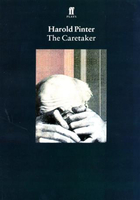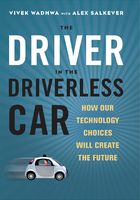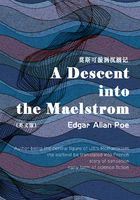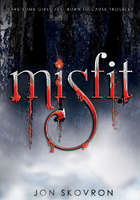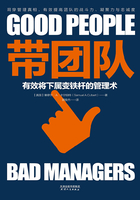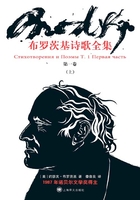12:34 A.M., MONDAY, JANUARY 28, 1974—BRUNEI
Fletcher was grinning as he stared at the hospital ceiling.
"Who hired you?"
Fletcher said, "Man name of Casper Junior remembered me as a shooter around the state when I was doing demonstrations for the National Rifle Association. I never seen him before. I just know there was one man paying all the bills."
"Don't you have any idea who that could be?" Nick asked desperately.
"I got an idea, sure. But that don't mean nothing. I got an idea it was the man everybody in Dallas was so proud of for doing it—Z. K. Dawson, the oil man. I mean, he coulda organized it. He sure knew ever'body."
"But you don't know it was Dawson?" Keifetz asked.
"But—look, here—just a minute," Nick said. "What about Willie Arnold? The Pickering Commission proved that Willie Arnold shot my brother. What about Arnold in this thing?"
"Willie was kind of a coffee-runner for Diamond," Fletcher said with exhaustion. His voice sounded like a surgeon's xyster scraping a living bone. "Willie ran errands, and they had him to be the spare fall guy. I was Number One to take the fall, but I used my head, so they made Willie take it, then Diamond killed him before he could talk to ever'body and crap on ever'thing." His voice had fallen to a whisper.
"Turk," Nick said, "do you think the rifle is still hanging in that steam pipe in Room 603?" He leaned over close to Fletcher's ear to say that.
"Sure. Why not?" Fletcher spoke thickly. "Nobody but me knew about it. It's right there, covered all over with my prints for when the time came when I had to prove I killed the President. An' I taped my own name to the rifle too, because nobody was able to tell me whether fingerprints could just fade away."
Nick leaned close to Fletcher's ear again. "You are garbage," he said intensely. "You are a back-shooting murderer. Nobody but me is going to get that rifle, and when I get it I'm going to rip your name off it, and I am going to polish it with a cloth so that nobody will be able to tell it was you who fired it. You aren't going into history, Turk. You are going straight to hell."
"Needless to say," Keifetz said to Tate and Sis Ryan, "that part doesn't go into the deposition."
Fletcher flopped his head over to face Nick, breathing shallowly and rapidly. "Don't—do—that," he pleaded. He kept staring at Nick. Keifetz stared into Fletcher's popped, beseeching eyes and said, "Jesus, he's dead."
"Well, it wasn't unexpected, was it?" Tate said.
"I'll get the cops to lift his fingerprints and get us some mug shots," Keifetz said. "They belong with the deposition."
"We'll have that ready some time tomorrow afternoon," Tate said. He and Sis Ryan shook hands with both men and left.
"Keifetz?" Nick said.
"Yeah?"
"When you called me on the Teekay, what did you mean about sixteen people being dead?"
"What the hell has happened to you? We been over this ten times already. Sixteen people are known to be dead because they had some kind of information about the assassination."
"How many of them died within a couple of months of when Tim was killed?"
"Twelve, maybe. Maybe fourteen. Why?"
"I am trying to figure out something."
"They were people who should have been called before the Pickering Commission. Except they were never called, because one was shot through the head, one hanged herself in a Philadelphia jail. A Philadelphia reporter was thrown out of a window. A woman who had taken some home movies that day was dropped over the side of a cruise ship. A reporter was shot to death in a California police station. Sixteen were killed. Nobody will ever know how many were threatened to make them run and shut up, but there's nearly a dozen on the record."
"But the people who were killed just knew something. Like some shred that when put together with other shreds would tell who the killers were?"
"That's right."
"Well, Fletcher not only knew something, he was one of the people paid to shoot Tim, he says."
"Right."
"Then how come he survived for fourteen years? If they were out killing people who had little shreds, how come Fletcher got away?"
"Well—"
"How long has he worked for us?"
"I thought about four years, but it could have been six."
"And he said he just wanted to work for us for the kick of working for Tim Kegan's brother?"
"That's what he said."
"Well, I think he wanted to work for us because we're about the last place his former employers would think of looking for him."
"I think you're right. Yeah. That's it. But let's stay with the big point. Whoever paid to kill your brother paid other people to smother all the evidence, no matter where it popped up or how fast it popped up."
"But that would take police cooperation."
"More than that. Beyond that. Whoever arranged it sure got the cooperation of the FBI and the Pickering Commission. If the same guy had been in charge when they murdered Julius Caesar, Shakespeare would have been short one play, I can tell you. Never have so many been clammed up by so few."
"It's crazy. It's like the whole government was dropping acid."
"It's been crazy for fourteen years. You just started to notice it."
"I don't see how everybody could let it happen."
"Well, you let it happen. And the American people got three marvelous days of television out of it. Outside of that they didn't seem to be shook up. You try telling any one of them that there was a second rifle—just a second rifle, don't confuse them—and see what happens."
Nick was dazed. He stood up and sat down and walked to the window, then went over to look down at Fletcher's body.
"It's more droll than you know," Keifetz said. "One of the White House Secret Service detail who was on the job in Philly that day announced that he wanted to testify before the Pickering Commission about the failure of the Secret Service to take proper precautions to protect the President. They indicted him. Yeah. On the wild charge of trying to sell government files. And the Pickering Commission announced they just didn't have time for stuff like that. Get it? This guy was working on the President's detail that day, fahcrissake."
"Where is he? We've got to find him and talk to him."
"He was number sixteen. He's dead."
***
When the police and the photographer came in, Keifetz fell into Bahasa, and they went to work taking prints and mug shots of Fletcher. Keifetz freed the room for the resident and two nurses about twenty minutes later. It was a quarter to two in the morning when he drove Nick to the VIP guesthouse. Every insect in the surrounding jungle was alive and sounding. "Room eight," Keifetz said at the main door. "Right down the hall."
"Thanks."
"What's the next move?"
"I have to think about it."
"Don't think too much. It always slows you down."
"That is insubordinate."
"That's what you have me around for."
"Just shut up, will you do that?"
***
Nick, in white pajamas, lay across the bed in the guesthouse. He tried to think about Yvette Malone, but she wouldn't come into his head. Tim had been dead for fourteen years. The whole world was satisfied (except maybe a few Frenchmen) that the man who had killed him, Willie Arnold, had paid the penalty. Siegfried had floated off down the river on a leaf at last. The past was out of sight. The thing now was to know what was wisdom. Was all this why history contained so little truth? Was the history of all time piled up in a refuse heap at the back of humanity's barn, too ugly to be shown, while the faked artifacts that were passed around for national entertainments took charge in the front parlors? Could the seven hack lawyers of the Pickering Commission, with a new President for a client, decide that two hundred million people could not withstand the shock of history?
He got up from the bed wearily. He carried his attaché case to the table in the room, opened it, took out a book of piano scores and a folding practice keyboard. He laid the keyboard across the table and pulled up a chair. He leaned on his feet, but the weight of his body rested on the chair so that his trunk could move freely. His arms assumed a slightly stretched position at a higher level than the keyboard to facilitate the velocity of octave and chord playing. However, he was careful not to assume a high forearm position, because that could make the functioning of the muscles so unreliable that virtually none of the finger strokes would be entirely exact. Fortunately he had short forearms, which were most advantageous for the velocity of octave technique and let him execute swing strokes easily and surely.
He began with the slow practicing of fast scales in order to limber up, decomposing every movement into its components. To keep his finger action clean he executed the swinging movements of his fingers in a way exactly corresponding to the way they would be executed in fast tempo. He decomposed the action of his thumb and divided its movements into the preparation and the stroke, instead of executing a single, unbroken swing stroke.
Nick was equally thorough in everything he did, once he had decided it was important. He had the gift/curse of total commitment totally arrived at because he was a literal, systematic man. As he thought of the invisible face that had ordered Tim to be made dead, he started to break down all of the movements that might have been initiated within such a man's mind.
As with: what to do if he found Fletcher's rifle? As with: the succession of broken comma chords in the transition in the first movement of the Waldstein Sonata. His upper arm performed energetic vertical movements added to the rotation of the forearm, the passive movement of the wrist and the slight bending of the elbow joint. Everything worked together interdependently, capable of being stopped only if the censor in the mind ordered all of it to stop.
The Pickering Commission had operated like arms, elbows and fingers upon a silent keyboard. They had played all the notes—the score was surely there to be read, but they would not allow it to be heard. The commission had announced Stephen Foster when they were actually playing Wagner. Surely, critics who had followed the true score should have pointed that out.
As he played, two immediate decisions became apparent. He had to find the murderer-hirer; and somehow his father would have to be persuaded to help him. Then he felt sleepy. He put the keyboard and the score book back into the attaché case, lay down on the bed, forgot he was wearing white pajamas, and went to sleep.
A car picked him up at eight o'clock in the morning. It drove him to Keifetz' office in Brunei, but Keifetz wasn't there. Nick put in calls to his father in Palm Springs, to David Carswell, his manager in London, and to Jake Lanham on the Teekay. Daisy, Keifetz' gorgeous Filipina secretary, lined up plane tickets to Philadelphia from Singapore via London. While he waited for the calls to come in he tried to figure out the time-zone ratios to keep from thinking of the holy hell Pa was going to raise when he heard that Nick had left the Teekay. Well, maybe not. Maybe even Pa would rate nailing Tim's murderer over, at the most, six hours more on a drilling ship. The Lanham call came in first. Nick told Jake he was to take over as drilling superintendent until Pa's people came aboard, and he emphasized that Jake was to get a written release from them certifying that the Teekay was in perfect condition. The London call came in about ten minutes after Jake's. Carswell had a hard time fighting his way out of a sleeping-pill haze. It was eleven o'clock the night before in London. Nick had to repeat his name several times to get through to Carswell's recognition level.
"You know who I am now?" Nick abominated Carswell because he was a fink of Pa's.
"Perfectly all right," Carswell said. "Missed the name at first. Playing the wireless too loud, I suspect."
"That is a transparent lie, David."
"What? Will you repeat that, please?"
"Write this down," Nick snarled.
"Try to speak more clearly, Nick."
"I arrive at Heathrow at ten o'clock Tuesday morning on BOAC 713 from Singapore," Nick shouted. "Go to my flat and pack a bag with winter clothes for me. Meet me in the VIP lounge and bring me a heavy overcoat, a muffler, a hat and long woolen underwear. What I am wearing now could kill me in Philadelphia in January."
"What about the Teekay?"
"I'll tell you about it Tuesday morning. And don't take that tone of voice."
"Your father will not be at all pleased, nonetheless."
"Did you make a list, you twit? Did you write it all down? You sound all doped, and I need those clothes."
"Not to worry."
"Next—pay attention, goddammit—call Miles Gander at the Petroleum Club in Philadelphia and ask him to hold breakfast for me Wednesday morning."
"He's about to go bankrupt, you know."
"Just call him. Save your comment." Nick detested Carswell doubly each time he was forced to talk to him, because Carswell's whole air made him act like such an ass.
When Carswell disconnected he was wide awake enough to put in a direct-dial call to Thomas Kegan in Palm Springs.
Nick's call to Pa was still delayed, but the charter was waiting to fly him to Singapore. He told Daisy to talk to Pa and to tell him that Nick had finished the tests on the Teekay and was on his way to Palm Springs. When he got outside, Keifetz was waiting to drive him to the Shell airport.
"What did you decide to do?" Keifetz asked as they drove away.
"Find the rifle."
"Better take a couple of witnesses. But lay off newspaper guys."
"I'll have Miles Gander as a witness."
"Poor Miles," Keifetz said. "He's going bankrupt."
"That's certainly the world's worst-kept secret. I'm going to ask Miles to find me a Philadelphia police official as the other witness."
"The Philadelphia police didn't smell very good in 1960."
"It can't be helped. The rifle is a murder weapon, and it's their turf. Anyway, we'll outnumber him."
"Then what?"
"If I find the rifle?"
"What else?"
"Then I'll take Fletcher's deposition and prints and photographs—which you will airmail out to Palm Springs by tomorrow afternoon—together with the rifle, and my father and I will go to the President and ask that the investigation be reopened."
***
Keifetz was coming in the office door after seeing Nick off when Pa's call came through. He told Daisy he'd take it.
"What's up, kiddo?" Pa said.
"Nicholas is on his way to the States."
"What about the Teekay?"
"He finished the tests."
"Maybe he thought he finished, but he doesn't finish until I say he's finished."
"Anyway, Mr. Kegan, he's on his way."
"Why is he having breakfast with Miles Gander?"
"I don't know, Mr. Kegan."
"Listen—you know, and I know you know."
"Mr. Kegan, how do I know? Maybe he meant to tell me, but he was out of here like a shot this morning.
"But you saw him?"
"Yes, sir."
"Okay. Why is he having breakfast with Miles Gander?"
"A man who worked here died last night. Before he died he confessed that he had been the second rifle when they killed President Kegan."
"Why didn't you tell me that?"
"Nicholas wants to tell yon himself."
"What's Nick going to the States for?"
"The guy who was dying told Nicholas where he hid the rifle. Nicholas is going to Philadelphia to get the rifle, with Miles Gander and a police official as witnesses."
"No press!"
"No, Nicholas won't call in the press. He also got a deposition and fingerprints of the man who died—Arthur Fletcher. Those are going out to him by registered mail to your address—probably tomorrow night."
Pa hung up on him.

